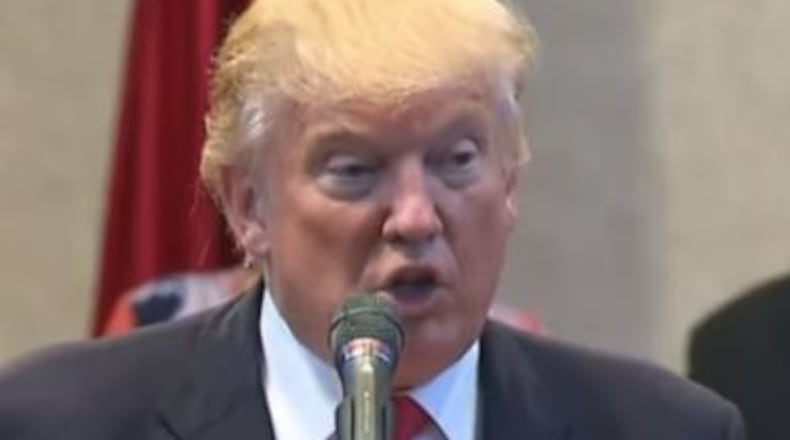In a bid to cut down on crime in America's inner cities, Donald Trump on Wednesday embraced the idea of allowing police to more aggressively "stop-and-frisk" people on the streets, even though those tactics were ruled unconstitutional several years ago in his home town of New York, as a federal judge said it amounted to racial profiling.
"I would use 'stop-and-frisk,'" Trump said in a Fox News town hall in Ohio. "I think you have to."
While Trump said stop-and-frisk in New York "worked incredibly well," that call an drew immediate and furious push back from the Mayor of New York, who went down to the press room at city hall to express his disbelief.
Mayor Bill de Blasio - a supporter of Hillary Clinton - labeled Trump's idea "appalling," suggesting that Trump is "either ignorant about the history of the city or he's lying about it."
Trump's support for "stop-and-frisk" also drew howls from some Republicans as well.
"If you like big government you will love Donald Trump's complete disregard for your fourth amendment rights," said A.J. Spiker, a former top advisor to Sen. Rand Paul (R-KY) and a past chairman of the Iowa Republican Party.
"Stop-and-frisk" basically allows police to search anyone on the street - it was used in New York, but ultimately blocked by a federal judge, who ruled in 2013 that it amounted to racial profiling.
"The NYPD carries out more stops where there are more black and Hispanic residents," wrote Judge Shira Scheindlin, who found that the city's police violated constitutional protections against unreasonable searches and seizures, and that the practices ran against the 14th Amendment because they were racially discriminatory.
"In practice, the policy encourages the targeting of young black and Hispanic men based on their prevalence in local crime complaints," the judge wrote in her August 2013 opinion .
"This is a form of racial profiling," the judge added.
Since the ruling, the city gave up on its legal effort to appeal the decision, and instead now has a court appointed monitor overseeing the police department, working on ways to have the police make stops of suspicious persons, but not violate their constitutional rights in the process.
While critics of the 2013 ruling argued it would result in an increase in crime, actually crime levels have dropped in New York, even as the number of times police have used "stop-and-frisk" has drastically declined.
About the Author
The Latest
Featured



